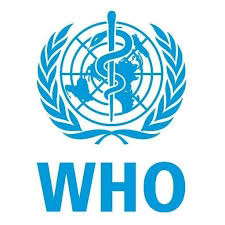World TB Day: TB Kills 1.5m People Yearly - Conflicts Affecting Treatment to Patients-WHO Laments
On World Tuberculosis Day, we pay tribute to the millions who lose their lives to TB, and the millions who continue to struggle daily against this preventable and curable disease.
We salute those health workers who give so much in their efforts to stop the spread of this disease, and to save the lives of those affected by it.
Tuberculosis kills more than 1.5 million people each year and affects millions more, with enormous impacts on families and communities.
Ending this debilitating disease remains a priority for WHO, and in recent years, we have made encouraging progress globally. More than 66 million people received access to TB services since the year 2000.
This year, World Tuberculosis Day puts the spotlight on the urgent need to invest in the fight against TB to achieve the commitments made by global leaders.
This is especially critical in the context of the COVID-19 pandemic, coupled with conflicts across Europe, Africa and the Middle East, which are disrupting services for TB and putting an even heavier burden on those affected.
As a result of these disruptions, WHO has reported an increase in TB deaths for the first time in more than a decade.
We have also lost ground in diagnosing and treating with TB.
We need to urgently reverse these trends, and end preventable deaths and suffering.
Let me highlight three priorities for action:
First, we call on high-burden countries and the international community to urgently step up domestic and international investments in expanding access to the tools we have, and in developing new tools.
Global spending on TB diagnostic, treatment and prevention services fell from 5.8 billion US dollars in 2019 to 5.3 billion US dollars last year, which is less than half of the global target of US$ 13 billion annually by 2022.
We need to more than double investments in research and development to drive discovery of new tools, including vaccines, and to scale up lifesaving innovations.
To intensify vaccine development, building on lessons from the pandemic, WHO plans to convene a high-level summit later this year.
Like all investments in health, investments in TB will yield significant benefits through lives saved, health care costs averted and increased productivity.
Second, we call on all countries to restore and maintain essential TB services, even in the face of COVID and other emergencies.
These services can and should be delivered alongside services for COVID-19, and should also be integrated into national pandemic preparedness plans.
We are especially concerned for the health of people with TB in Afghanistan, Ethiopia, Syria, Ukraine and Yemen, where conflict is jeopardising their access to services – and their very lives.
Given that Ukraine has a high burden of drugresistant TB, WHO is working closely with partners to support access to TB care services, including for refugees and displaced populations.
Third, we call on all countries and partners to urgently ramp up the TB response as we reach toward the 2022 targets. Lives depend upon it. This includes high level political leadership and dialogue.
Next year’s 2nd UN High-Level Meeting on TB provides an important opportunity to catalyze action.
In the coming months, WHO will work with the offices of the Secretary-General and the President of the General Assembly to prepare for the meeting.
Thank you all for your continued commitment, engagement and support as we work together to fight this ancient disease.
As we mark World TB Day, I urge all countries, partners and civil society to redouble their efforts to End TB.
I thank you




Comments
Post a Comment
Thanks for your comments